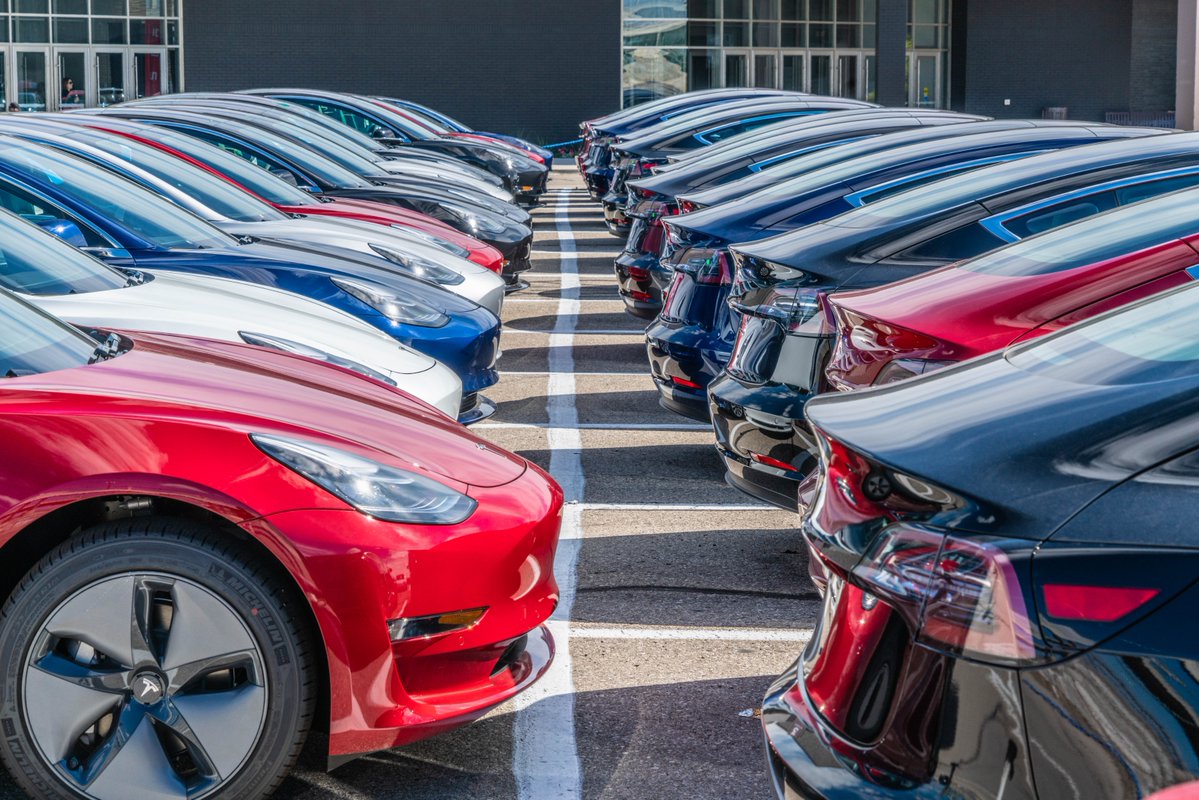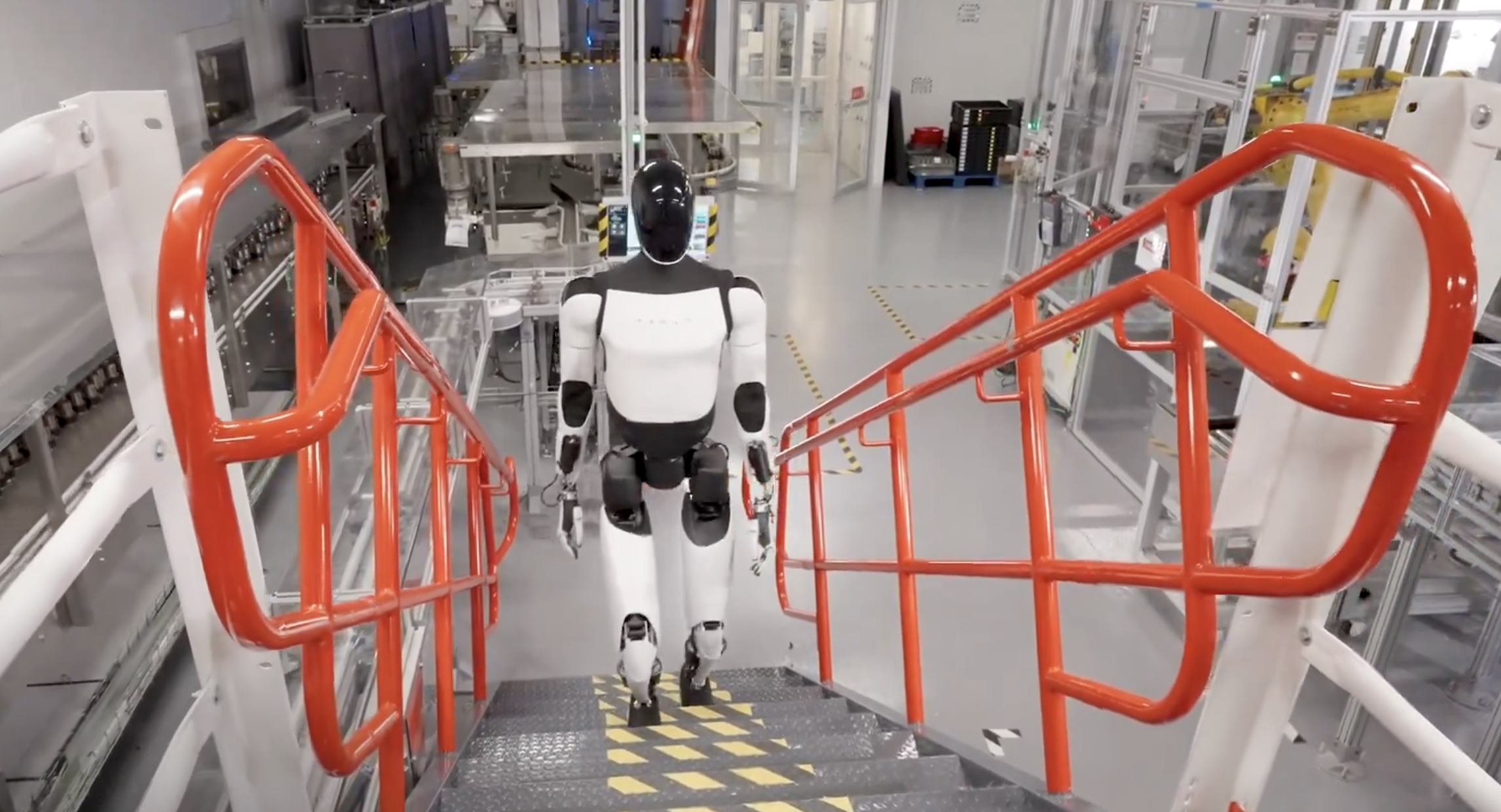

Investor's Corner
Tesla spends $0 on ads, still tops automakers in organic engagement: report
A recent report from competitive intelligence analysis firm BrandTotal recently determined that Tesla has the strongest organic engagement in social media among automakers. The electric car maker was able to accomplish this despite spending $0 in paid advertising campaigns on platforms such as Facebook, Twitter, YouTube, and Instagram.
For its report, the competitive intelligence firm analyzed all paid and organic social media campaigns initiated by major automotive brands over a 30 day period. These include companies such as Toyota, BMW, Ford, Audi, Honda, Nissan, Infiniti, Lexus, Cadillac, Porsche, and Tesla in the United States. Based on BrandTotal’s figures, it appears that veteran automakers are still investing a large portion of their budget on Facebook, despite the platform seeing a decline in users over the past years.
Toyota is among the automakers who spent the most on Facebook, allocating 62% of its advertising budget to the social media platform. Other carmakers such as BMW (46%), Ford (55%) and Infiniti (52%) also focused their campaigns on the platform. Alon Leibovich, co-founder & CEO of BrandTotal, noted that a plausible reason behind this is Facebook’s older audience, which fits more with the target demographic of the carmakers.

“Facebook reigns supreme for paid campaigns among these four digital channels for major autos. Our data shows that when brands are looking to engage older audiences, they lean on Facebook to do so, while YouTube and Instagram are mostly used to reach younger audiences,” he said.
Other social media platforms that proved popular for advertising were YouTube, which took a third to almost half of the budget of brands like Honda, Cadillac, Porsche, and Audi. Instagram also proved very popular, with Porsche, BMW, and Infiniti spending 30-40% of their ad budget on the photo-sharing platform. Twitter takes the last place in BrandTotal’s list, with only BMW spending 20% of its budget on the site.

Standing in stark contrast from other carmakers is Tesla, which spent $0 in paid advertising on all social media platforms. Despite this, BrandTotal’s results point to the Silicon Valley-based electric car maker having the most organic engagements in social media. Tesla’s presence on Instagram was particularly prolific, with 55% of the company’s social activity happening on the photo-sharing site. Tesla also has a formidable presence on Twitter, with 11% of the company’s social media activity occurring on the platform. Of course, the presence of CEO Elon Musk’s personal Twitter account, which has over 26 million followers, augments Tesla’s social media presence further.
A company’s high organic engagement in social media happens when a brand attracts people that are highly engaged, according to Leibovich. This is particularly true for Tesla’s presence on Twitter, which sees daily activity from both the company’s supporters and skeptics. “Strong brands are able to command high engagement even without a robust digital ad spend. In Tesla’s case, we see their engagement numbers are high compared to other auto brands allocating spend in their digital campaigns. This may be a result of Tesla’s fans already being engaged and active users on Twitter and other platforms. The brand doesn’t feel the need to spend on paid social media marketing when their organic reach is so strong,” he said.
Tesla and Elon Musk’s strong online presence has proven to be a double-edged sword for the electric car maker. Musk’s Twitter account, for example, serves as one of Tesla’s most effective tools for the company to communicate with owners and enthusiasts, but it has also proven to be dangerous. The CEO’s Twitter account, for one, was a key reason behind the creation of safety features such as Sentry Mode, but at the same time, Musk’s tweets have also attracted the ire of regulators such as the Securities and Exchange Commission. The high interest garnered by Tesla and Elon Musk has also attracted an extraordinary amount of coverage from mainstream media, both negative and positive.
Investor's Corner
Tesla could save $2.5B by replacing 10% of staff with Optimus: Morgan Stanley
Jonas assigned each robot a net present value (NPV) of $200,000.

Tesla’s (NASDAQ:TSLA) near-term outlook may be clouded by political controversies and regulatory headwinds, but Morgan Stanley analyst Adam Jonas sees a glimmer of opportunity for the electric vehicle maker.
In a new note, the Morgan Stanley analyst estimated that Tesla could save $2.5 billion by replacing just 10% of its workforce with its Optimus robots, assigning each robot a net present value (NPV) of $200,000.
Morgan Stanley highlights Optimus’ savings potential
Jonas highlighted the potential savings on Tesla’s workforce of 125,665 employees in his note, suggesting that the utilization of Optimus robots could significantly reduce labor costs. The analyst’s note arrived shortly after Tesla reported Q2 2025 deliveries of 384,122 vehicles, which came close to Morgan Stanley’s estimate and slightly under the consensus of 385,086.
“Tesla has 125,665 employees worldwide (year-end 2024). On our calculations, a 10% substitution to humanoid at approximately ($200k NPV/humanoid) could be worth approximately $2.5bn,” Jonas wrote, as noted by Street Insider.
Jonas also issued some caution on Tesla Energy, whose battery storage deployments were flat year over year at 9.6 GWh. Morgan Stanley had expected Tesla Energy to post battery storage deployments of 14 GWh in the second quarter.
Musk’s political ambitions
The backdrop to Jonas’ note included Elon Musk’s involvement in U.S. politics. The Tesla CEO recently floated the idea of launching a new political party, following a poll on X that showed support for the idea. Though a widely circulated FEC filing was labeled false by Musk, the CEO does seem intent on establishing a third political party in the United States.
Jonas cautioned that Musk’s political efforts could divert attention and resources from Tesla’s core operations, adding near-term pressure on TSLA stock. “We believe investors should be prepared for further devotion of resources (financial, time/attention) in the direction of Mr. Musk’s political priorities which may add further near-term pressure to TSLA shares,” Jonas stated.
Investor's Corner
Two Tesla bulls share differing insights on Elon Musk, the Board, and politics
Two noted Tesla bulls have shared differing views on the recent activities of CEO Elon Musk and the company’s leadership.

Two noted Tesla (NASDAQ:TSLA) bulls have shared differing views on the recent activities of CEO Elon Musk and the company’s leadership.
While Wedbush analyst Dan Ives called on Tesla’s board to take concrete steps to ensure Musk remains focused on the EV maker, longtime Tesla supporter Cathie Wood of Ark Invest reaffirmed her confidence in the CEO and the company’s leadership.
Ives warns of distraction risk amid crucial growth phase
In a recent note, Ives stated that Tesla is at a critical point in its history, as the company is transitioning from an EV maker towards an entity that is more focused on autonomous driving and robotics. He then noted that the Board of Directors should “act now” and establish formal boundaries around Musk’s political activities, which could be a headwind on TSLA stock.
Ives laid out a three-point plan that he believes could ensure that the electric vehicle maker is led with proper leadership until the end of the decade. First off, the analyst noted that a new “incentive-driven pay package for Musk as CEO that increases his ownership of Tesla up to ~25% voting power” is necessary. He also stated that the Board should establish clear guidelines for how much time Musk must devote to Tesla operations in order to receive his compensation, and a dedicated oversight committee must be formed to monitor the CEO’s political activities.
Ives, however, highlighted that Tesla should move forward with Musk at its helm. “We urge the Board to act now and move the Tesla story forward with Musk as CEO,” he wrote, reiterating its Outperform rating on Tesla stock and $500 per share price target.
Tesla CEO Elon Musk has responded to Ives’ suggestions with a brief comment on X. “Shut up, Dan,” Musk wrote.
Cathie Wood reiterates trust in Musk and Tesla board
Meanwhile, Ark Investment Management founder Cathie Wood expressed little concern over Musk’s latest controversies. In an interview with Bloomberg Television, Wood said, “We do trust the board and the board’s instincts here and we stay out of politics.” She also noted that Ark has navigated Musk-related headlines since it first invested in Tesla.
Wood also pointed to Musk’s recent move to oversee Tesla’s sales operations in the U.S. and Europe as evidence of his renewed focus in the electric vehicle maker. “When he puts his mind on something, he usually gets the job done,” she said. “So I think he’s much less distracted now than he was, let’s say, in the White House 24/7,” she said.
TSLA stock is down roughly 25% year-to-date but has gained about 19% over the past 12 months, as noted in a StocksTwits report.
Investor's Corner
Cantor Fitzgerald maintains Tesla (TSLA) ‘Overweight’ rating amid Q2 2025 deliveries
Cantor Fitzgerald is holding firm on its bullish stance for the electric vehicle maker.

Cantor Fitzgerald is holding firm on its bullish stance for Tesla (NASDAQ: TSLA), reiterating its “Overweight” rating and $355 price target amidst the company’s release of its Q2 2025 vehicle delivery and production report.
Tesla delivered 384,122 vehicles in Q2 2025, falling below last year’s Q2 figure of 443,956 units. Despite softer demand in some countries in Europe and ongoing controversies surrounding CEO Elon Musk, the firm maintained its view that Tesla is a long-term growth story in the EV sector.
Tesla’s Q2 results
Among the 384,122 vehicles that Tesla delivered in the second quarter, 373,728 were Model 3 and Model Y. The remaining 10,394 units were attributed to the Model S, Model X, and Cybertruck. Production was largely flat year-over-year at 410,244 units.
In the energy division, Tesla deployed 9.6 GWh of energy storage in Q2, which was above last year’s 9.4 GWh. Overall, Tesla continues to hold a strong position with $95.7 billion in trailing twelve-month revenue and a 17.7% gross margin, as noted in a report from Investing.com.
Tesla’s stock is still volatile
Tesla’s market cap fell to $941 billion on Monday amid volatility that was likely caused in no small part by CEO Elon Musk’s political posts on X over the weekend. Musk has announced that he is forming the America Party to serve as a third option for voters in the United States, a decision that has earned the ire of U.S. President Donald Trump.
Despite Musk’s controversial nature, some analysts remain bullish on TSLA stock. Apart from Cantor Fitzgerald, Canaccord Genuity also reiterated its “Buy” rating on Tesla shares, with the firm highlighting the company’s positive Q2 vehicle deliveries, which exceeded its expectations by 24,000 units. Cannacord also noted that Tesla remains strong in several markets despite its year-over-year decline in deliveries.
-

 Elon Musk1 day ago
Elon Musk1 day agoWaymo responds to Tesla’s Robotaxi expansion in Austin with bold statement
-

 News1 day ago
News1 day agoTesla exec hints at useful and potentially killer Model Y L feature
-

 Elon Musk2 days ago
Elon Musk2 days agoElon Musk reveals SpaceX’s target for Starship’s 10th launch
-

 Elon Musk3 days ago
Elon Musk3 days agoTesla ups Robotaxi fare price to another comical figure with service area expansion
-

 News1 day ago
News1 day agoTesla’s longer Model Y did not scale back requests for this vehicle type from fans
-

 News1 day ago
News1 day ago“Worthy of respect:” Six-seat Model Y L acknowledged by Tesla China’s biggest rivals
-

 News2 days ago
News2 days agoFirst glimpse of Tesla Model Y with six seats and extended wheelbase
-

 Elon Musk2 days ago
Elon Musk2 days agoElon Musk confirms Tesla is already rolling out a new feature for in-car Grok








